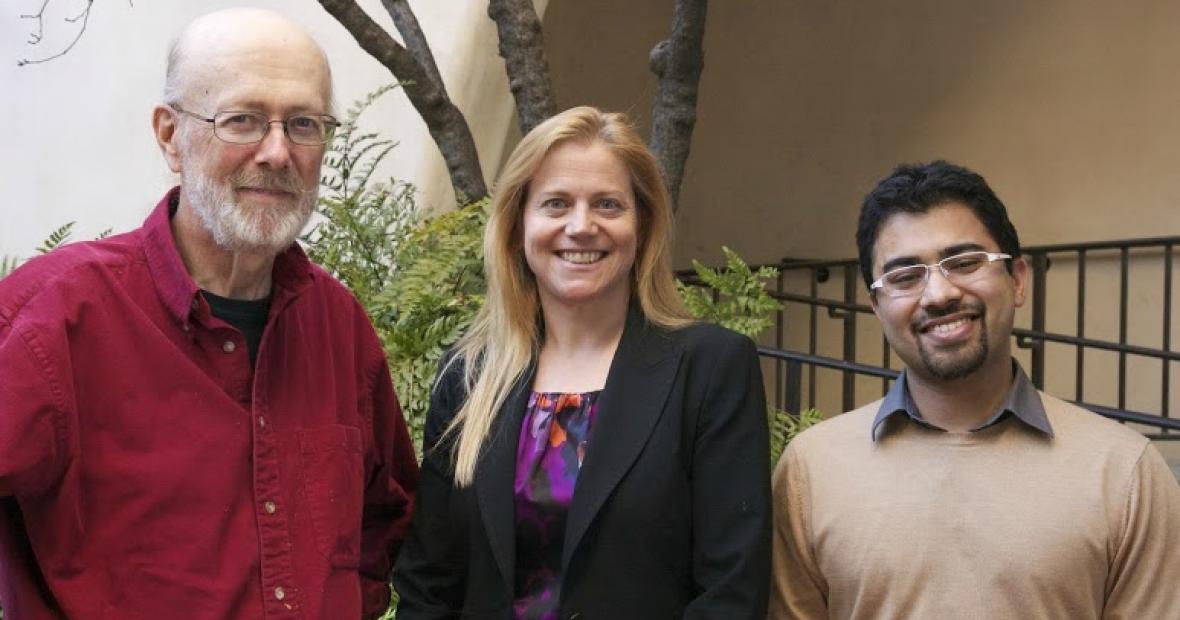Innovating to Cure
Three Grinnell alumni scientists representing 40 years of the College's history recently told an audience of fellow alums about research in curing diseases such as autism and obesity—and about how entrepreneurs are moving that research into clinical product development.
Lorrie Buchanan Alves '73, who works in law, and Paul Patterson '65, a biological sciences professor at the California Institute of Technology, organized the event. It featured:
- Patterson, who wrote a book (Infectious Behaviors) that explores the link between the immune system and mental disorders; he is working to develop a clinical study that could lead to a diagnosis for mental disorders like autism, for which no new effective medications are available.
- Shenda Baker '85, president of Los Angeles-based biotech medical company Synedgen and also a chemistry professor on leave of absence from Harvey Mudd College. Synedgen wants to develop medications that treat infectious bacteria.
- Alok Shah '04, who co-founded Emmyon Inc. in Iowa City, Iowa, last year after he earned a doctorate in molecular and cellular biology from the University of Iowa. During his last months of graduate work, he discovered that ursolic acid, found in the skin of green apples, may reverse metabolic diseases such as muscle atrophy, obesity, and diabetes.
Fifty-five people — mostly Grinnell alumni — attended the scientists' 30-minute talks on how research can move therapies into the clinical stage. They had a decidedly entrepreneurial bent.
"I'm not a business person, I'm a scientist," Shah says. Yet he decided the best way to maximize his finding's potentially huge impact was to start a company, learning issues such as fundraising and payroll to eventually bring a treatment to market. "In Paul's generation," Shah says, "Starting a company would be selling out."
Times have changed, partly because websites such as Kickstarter make financing entrepreneurial efforts easier and more democratic. Baker sees another shift: Big drug companies are funding less original research, so startups must fill the void.
"Entrepreneurs are not going to Wall Street and joining a big company," Baker says. "Entrepreneurship is going out and doing something that you think is worthwhile." —Matt Blake '04

